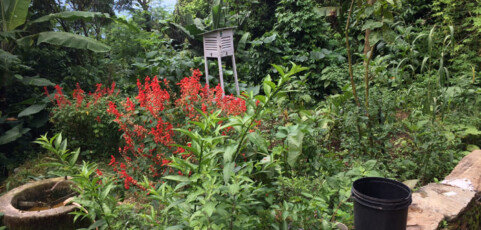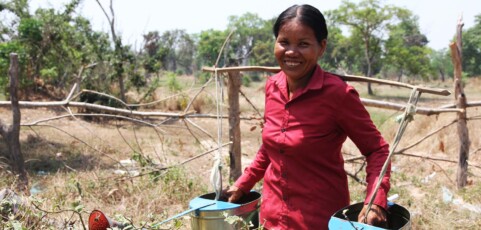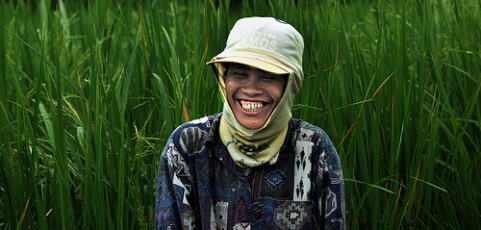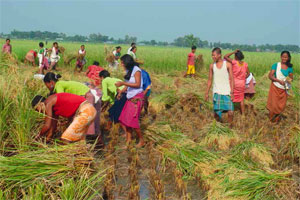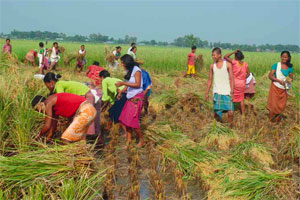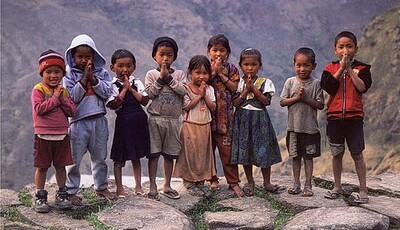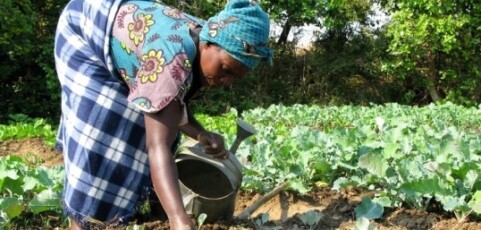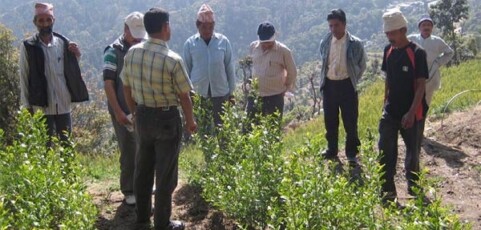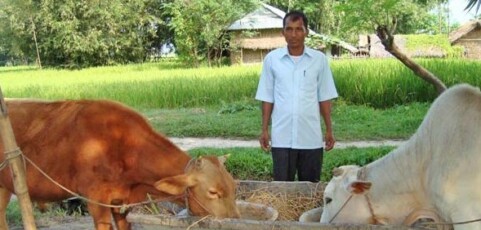With a population of more than 28 million, Nepal is one of the poorest countries in Asia. But it is enormously rich in terms of biodiversity and natural resources, and agriculture plays a very important role in the country’s economy. It is also very rich in another way: young people make up 40 percent of the population. The problem is that young people don’t seem to be interested in agriculture.
Nutrition from innovation and taste from waste
From a situation of widespread undernutrition, consuming fresh vegetables all year round has now become a reality for many Nepali households thanks to their expanding home gardens. But the stories they tell show that the benefits of home gardens are not limited to improving household nutrition. The gardens also help to empower women and conserve biodiversity, two much needed conditions for better family and community nutrition on a broader scale.
Climate Resilience Sustainable Agriculture Experiences
This document summarises case studies from ten countries through ActionAid’s approach to climate resilient sustainable agriculture, which incorporates agroecology in a human rights framework. Based on these experiences ActionAid recommends to increase investment in agroecology, as part of a comprehensive human rights based approach: Read more
Locally rooted: ideas and iniatives from the field
Family farmers and the many ways in which they contribute to food security, healthy landscapes and thriving rural communities can be supported in a number of ways. These are some initiatives from around the world.
Aprendiendo de los agricultores
La primera vez que leí sobre el SICA fue una tarde del 2002. En los siguientes años, en mi función de extensionista de la Oficina Distrital de Desarrollo Agrícola (DADO) empecé a promover el SICA en el distrito de Morang, Nepal.
Learning from farmers
It was an afternoon of 2002 when I first read about SRI. As an extension officer in the District Agriculture Development Office (DADO), I started promoting SRI in the following years in the district of Morang, Nepal.
Read more
Improving Food Security for Vulnerable Communities in Nepal
For families living in Nepal’s remote highland regions, chronic food insecurity and hunger are part of daily life. Their own agricultural production is low; imported food is expensive; and as men migrate to find work elsewhere, women are left to manage farms and households alone. Climate change is making the situation worse.
This case study explores the reasons why Nepal is so vulnerable to food insecurity, and describes what Oxfam and its partners are doing to help improve food security for women and men living in remote parts of highland Nepal. It explores some of the innovative program activities that have been developed with these communities.
Climate Resilient Agriculture: Experiences from Action Aid and its partners
It is based on the identification of the major risks and challenges local communities face, and/or are likely to face in the near future, and on the design and implementation of site-specific adaptation strategies aimed at reducing vulnerabilities and increasing the resilience of the smallholder production systems. SEE ALSO http://www.actionaid.org/publications
Sweet and sour delight: Value addition in citrus
Creating economic incentives is an effective way for conserving agrobiodiversity. Establishing market linkages and adding value through processing of locally available crops can provide such incentives for conservation through use, as is happening in Ghanteshwor village development committee (VDC) of Doti district in far western Nepal.
A breeding bull can benefit the whole village
The case of Suklal Rajbanshi, a farmer in Shivgunj, Jhapa who is providing valuable service to cow owners in his village.


